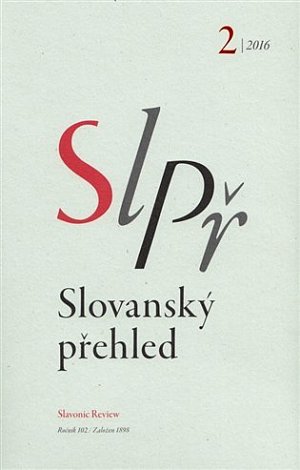| Nakladatel: |
Historický ústav AV ČR, v.v.i. |
| Kód |
D0346760 |
Z obsahu:
KOTOV Viktor
Počátky sokolského hnutí v Moskvě (konec 19. a počátek 20. století)
s. 179-204
Beginnings of the Sokol Movement in Moscow (End of the 19th and Beginning of the 20th Century)
This article examines the history of the Moscow Sokol movement at the end of the 19th and beginning of the 20th century. The Sokol movement in Russia is here conceived as an example of translating a cultural practice from a Central European to East European environment. The Sokol movement originated and evolved in the Czech lands under very different historical and social conditions than those of that time in Russia. Assimilation to the different environment necessarily required implementing certain modifications. A milestone for the Russian Sokol movement was the founding of the First Russian Gymnastics Society in Moscow in 1883, which gradually transformed into a genuine Sokol club. Certain personalities had a crucial influence upon these developments. Starting in 1891 František Olšaník was the leader of the gymnastic organization in Moscow, and Ferdinand Karel Šnepp took over after him in 1901. It was these two who introduced many of the truly Sokol elements into the Russian gymnastics organizations. However, they did not manage to impress upon them all of the characteristics of Czech Sokol, nor did the groups taking shape in Russia even bear the name of Sokol. The Krajanský Český kroužek [Czech Compatriots' Club] that was founded in 1902 also still did not have the word Sokol in its name, though it had much in common with the Czech Sokol movement. The era of the Sokol movement's heyday in Russia came after the revolution in 1905, and it was associated with social transformations and with neo-Slavism.
Key words: Sokol movement, Moscow, Russian Empire, Czech-Russian relations, Slavism.
VORÁČEK Emil
První kroky poválečné rekonstrukce a hospodářské obnovy v Československu v létě 1945
s. 205-247
The First Steps of Postwar Reconstruction and Economic Renewal in Czechoslovakia in 1945 In this study the author concentrates on several heretofore relatively less-studied topics from the period of postwar reconstruction of the Czechoslovak economy. The focal point of the research is on the period immediately following the country's liberation; that is, roughly from May until July 1945. The renewal of the economy was complicated by the need to immediately, and in parallel, solve many problems which would otherwise have had to be taken one by one. It was necessary to master a situation that was near to chaos, and doing so was also a political task of the utmost importance. The most pressing issues were reconstruction of the transportation infrastructure, supplying materials and fuel for renewing manufacturing, and providing for functional transportation, construction and specialized engineering technology. At the same time, processes were taking place to prepare for the complex renewal of the national economy, which later became the content of a two-year plan. The structure of the mechanisms for the new economic policy was given shape, and a great degree of nationalization, or, to be more precise, socialization was planned for in industry and banking.
Key words: postwar reconstruction, economic renewal, war damage, concept of renewal
KASHAPOV Timur
Československo-sovětská hospodářská spolupráce v první polovině 80. let 20. století
s. 249-276
Czechoslovak-Soviet Economic Cooperation in the First Half of the 1980s
The period of 1980-1985 is considered the climactic phase of cooperation between Czechoslovakia and the Soviet Union after 1968. In this contribution the author focuses on analysis of the content of commercial and scientific and technical cooperation between these countries. Utilizing newly-accessible sources from the archives of the Russian Federation and Czech Republic, he confirms the existence of a well-developed contractual, commercial, and
| Způsob dopravy |
Cena |

|
Osobní odběr zásilkovna
Více než 200 poboček po ČR |
69 Kč*
|

|
Balík do ruky |
79 Kč*
|

|
PPL v České Republice |
95 Kč*
|

|
PPL na Slovensku |
199 Kč*
|
* K objednávce bude připočteno balné ve výši 10 Kč, cena za dobírku není zahrnuta v ceně.
Uvedené ceny jsou včetně DPH |
| Způsob platby |
Cena |

|
Twisto |
ZDARMA
|

|
Hotově na pobočce zásilkovna |
39 Kč
|

|
Bankovním převodem předem |
ZDARMA
|

|
Dobírka |
39 Kč
|


